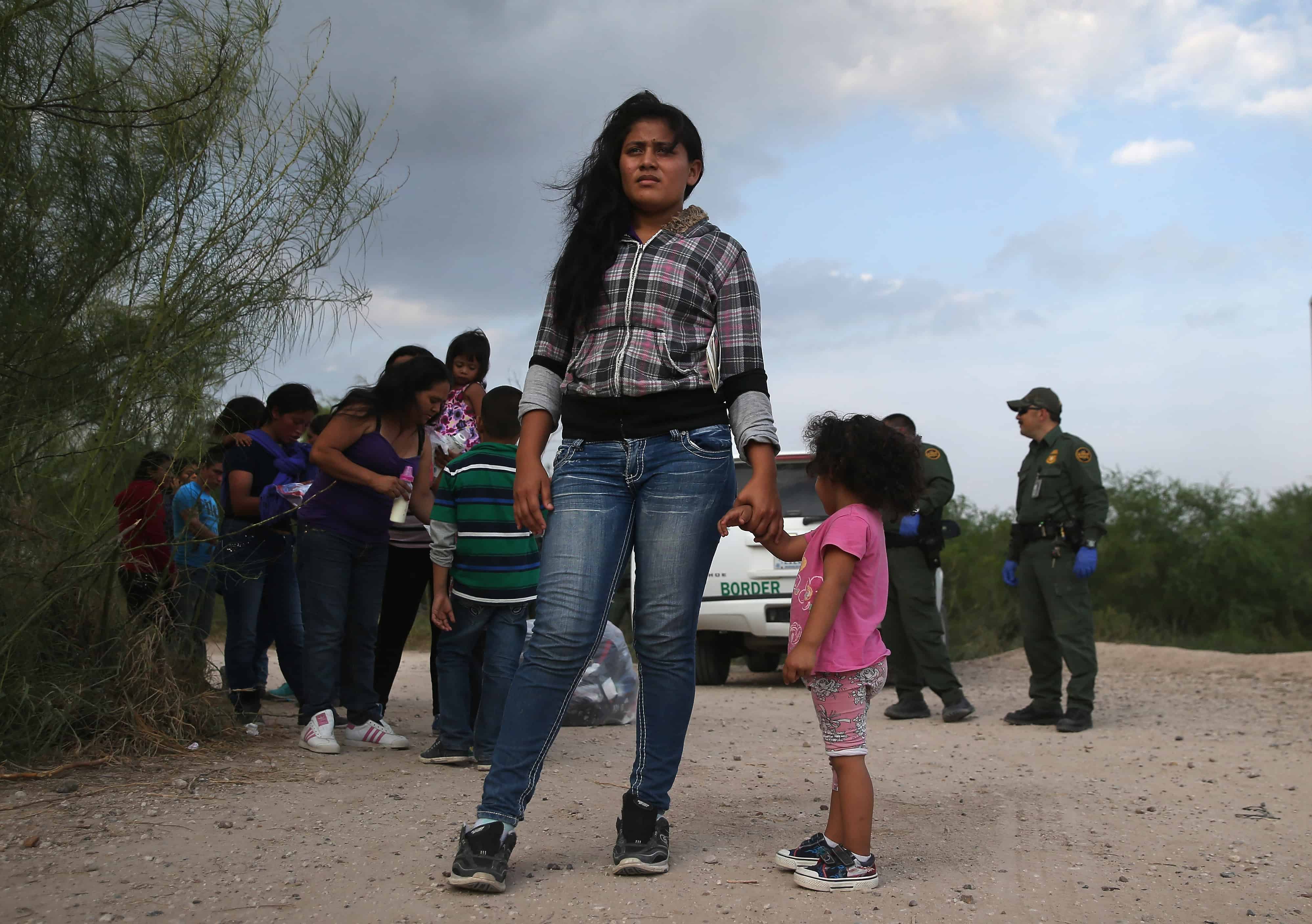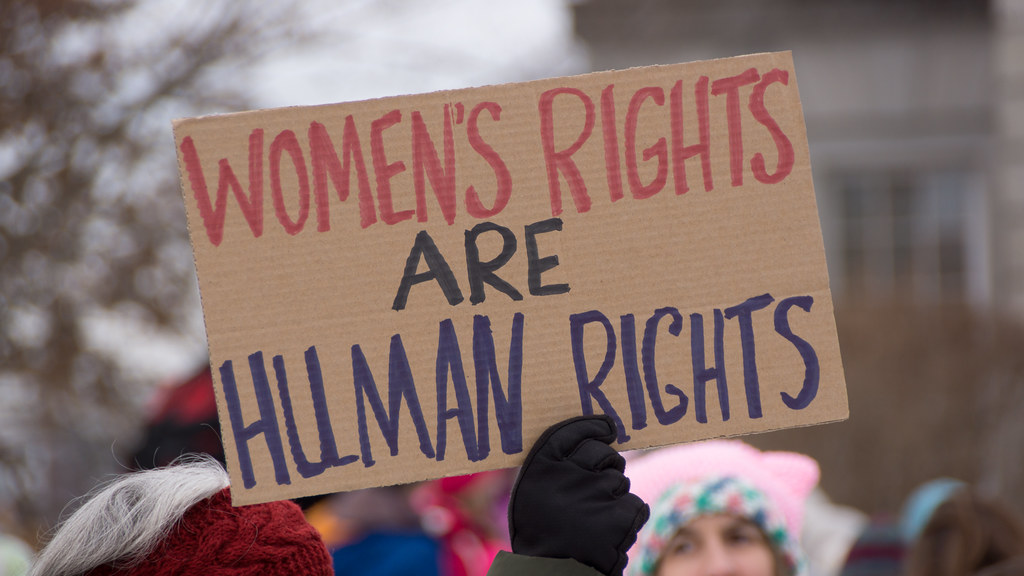
Domestic violence is one of the most common yet strikingly underreported demonstrations of discrimination against women. The chronic inability and failure of the United States legal system to protect women from their abusers is no secret. Domestic violence is the leading cause of injury to U.S. women between the ages of 15 and 44, and the Pan American Health Organization and Inter-American Commission of Women of the Organization of American States cite it as a serious violation of basic human rights. Women’s rights activists have fought for decades for clearer protections, harsher sentences for perpetrators and broader social services for domestic violence victims.
Unraveling Laws Protecting Immigrant Women
[dropcap]F[/dropcap]or immigrant and women rights activists alike, the recent upheavals of Matter of A-B- and decision of Matter of A-C-M, have been heart-wrenching as decades of court precedent protecting immigrant women’s rights has unraveled. The decisions, both individually and collectively, reinforce the misunderstanding that gender violence is a personal problem rather than institutionalized and systemic sexism. These recent rulings have not only reverted United States immigration law to a time when we wrongfully refused to acknowledge women’s asylum claims based on domestic violence or gender-based persecution, but have also threatened women’s rights across the board./cdn.vox-cdn.com/uploads/chorus_image/image/60127625/GettyImages_976901242.0.jpg)
Just days before Matter of A-B- was decided, Matter of A-C-M came before the Board of Immigration Appeals, detailing the harrowing story of a woman who was kidnapped and held captive by guerrillas in El Salvador. BIA determined that A-C-M’s forced labor was not an exception to providing material support to a terrorist group, even though her life was in danger. The court held that A-C-M’s involuntary labor of cooking and cleaning amounted to material support to a terrorist group. BIA placed the onus not on the perpetrators of A-C-M’s enslavement, but on her, stating that if she would have refused to complete the labor, someone else would have had to.
Shortly thereafter, Attorney General Sessions’ certification of Matter of A-B- raised grave concerns. The Attorney General’s power of certification grants him the ability, as the head of an administrative agency, to review and overturn decisions of independent tribunals. Inherently problematic in Attorney General Sessions’ decision to review the case is the fact that Sessions has little experience in immigration law. As a result, fundamental facets of asylum law such as “particular social group,” “nexus,” and “social visibility” were blurred, and established legal standards were disregarded.
Matter of A-B- specifically clarified that domestic violence by a private party can operate as persecution if the government is unwilling or lacks resources to stop the violence. Matter of A-B- was an extension of Matter of A-R-C-G which established that “married women of Guatemala who are unable to leave their relationship” is a particular social group for purposes of obtaining asylum, and that the harm suffered at the hands of a husband could rise to the level of persecution. The Department of Homeland Security, in recognizing the established precedent of A-R-C-G, submitted a brief suggesting to Sessions that the legal dispute at question in Matter of A-B- had already been decided. Sessions denied the DHS’ suggestion to refuse self-certification and overruled and remanded Matter of A-B-.
The Aftermath of Overruling Matter of A-B
[dropcap]P[/dropcap]articularly disturbing was Sessions’ decision to cite Matter of Pierre in his opinion, a 1975 BIA decision that determined a Haitian woman did not qualify for asylum even though her husband was an abusive high-ranking government official unlikely to be restrained by the legal system in Haiti. Sessions, in so citing this case, capsized the past forty years of women’s and immigrants’ rights legal theory, protections and advancements. Matter of Pierre deemed the abuse perpetrated by Pierre’s husband “strictly personal” and decided that “rape and physical violence, when in any family context, constituted individual harm but not society-wide persecution,” regardless of its acceptance at a societal level.Merium Malik, an immigration attorney based in New York, stated: “By classifying domestic abuse as ‘personal problem’, Sessions limits the role of government interference in protecting the rights of the abused, undoing efforts to legitimize violence against women facilitated by gender as a systematic, institutionalized problem. This will have a debilitating impact on the perception of domestic violence against women as a form of persecution, rendering it to a ‘personal’ issue rather than a violation of basic rights that requires governmental intervention and protection.”
“His view is archaic, rooted in patriarchy and intended to roll back women’s rights by minimizing the seriousness of sexual and gender-based violence”
The danger in these recent decisions is the failure to realize that domestic violence is tolerated and accepted as a fact of daily life due to the inaction of governments and the broken systems that fail to protect women. “It is extremely disturbing that the Attorney General characterizes domestic violence as a private matter,” states Dovie Yoana King, director of SOAR for Justice and victim’s rights attorney. “His view is archaic, rooted in patriarchy and intended to roll back women’s rights by minimizing the seriousness of sexual and gender-based violence.” She adds, “Domestic violence is never a private matter, and in the case of refugees fleeing gang violence and high rates of rape and homicide in their home countries, Sessions is eliminating an important legal safeguard for women, children and LGBTQ individuals. Many lives will be lost.”
These cases fail to recognize the social frameworks that perpetuate domestic violence and criminalize the victim for the acts carried out by the perpetrator. Sessions, mirroring the scenario that is seen in many sexual assault cases in the United States, questions the veracity and credibility of women seeking protection from domestic violence and abusive relationships. Sessions states that immigrant women are exploiting the system under false pretenses, despite the government’s admission that it does not have the capacity to determine the number of false asylum applications and, as a result, has not investigated such claims. Sessions further stated that, for many women seeking asylum based on domestic violence, the abuse either didn’t happen, or it did not reach the level required by asylum law.
Now, post-Sessions’ certification, domestic violence is seen, again, as a largely private matter, with the burden of proof exponentially heightened for women attempting to show that their partner’s actions were unable to be controlled by the government. The notion that any violence against women may not be protected in United States courts has the potential to impact not only asylum claims based on sex and gender, but on the ability of women to prevail against abusers in assault, trafficking, sexual identity discrimination, female genital mutilation and forced labor cases in any United States court.

Now, more than ever, the alarming stance against victims of domestic violence and the increased separation of immigrant families raises additional concerns of the viability of other protections, including the Violence Against Women Act (VAWA), which has given more than 100,000 immigrant survivors and their families a way out of abusive relationships. If women cannot claim relief from domestic violence under asylum law, what will happen to immigrant women attempting to claim relief under VAWA? The increasing number of deputized police forces operating within the Secure Communities program force undocumented women or women from mixed-status families to choose between seeking freedom from domestic violence or potentially separating their families.

In choosing to affirmatively challenge immigration jurisprudence and promote the deportation of women seeking asylum, the United States government has denied women the right to life, liberty and security of person. Domestic violence, already a shadow issue that rarely goes reported, will be pushed further into the darkness as immigrant women are forced to choose between seeking their own safety and keeping their families together. Policies that punish women for reporting or seeking state protection from these abuses deny women the right to freedom and full realization of their human rights. While the effects of Matter of A-B and Matter of A-C-M remain to be fully seen, the erosion of immigrants’ rights is the erosion of women’s rights. In failing to recognize the rights of immigrant women to be free from domestic violence, the United States has precariously positioned women’s rights on the chopping block.




